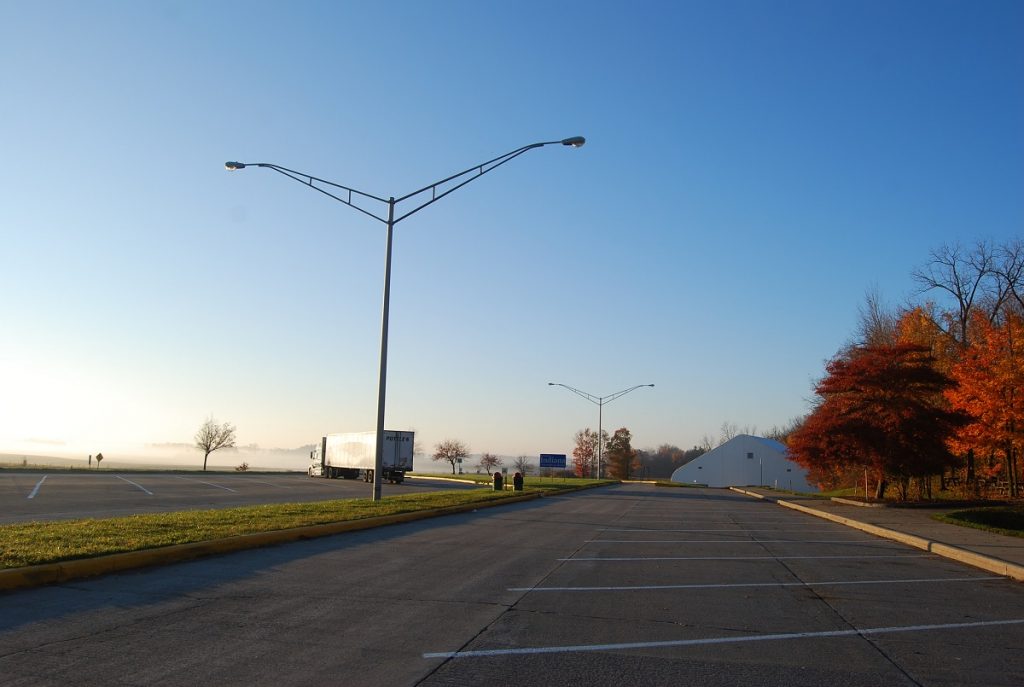- 1. Key Takeaways
- 2. What Is Car Camping?
- 2.1. Is It Safe?
- 2.2. Tips on Staying Safe
- 3. Where to Car Camp
- 3.1. National Parks
- 3.2. BLM Land
- 3.3. Truck Stops
- 3.4. Walmart Parking Lots
- 3.5. Hospital Parking Lots
- 3.6. Beachsides and Lakes
- 3.7. Private Campgrounds
- 4. How To Start Car Camping
- 4.1. Preparing Your Vehicle and Gear
- 4.2. Mapping Your Journey
- 5. What Do I Need To Bring When Car Camping?
- 5.1. Sleeping Arrangements
- 5.2. Cooking Essentials
- 5.3. Clothing
- 5.4. Safety and Navigation
- 5.5. Hygiene Essentials
- 5.6. Camping Essentials
- 5.7. Extras
- 6. How Do I Plan A Camping Trip?
- 6.1. Decide Where To Stay
- 6.2. Plan For The Weather
- 6.3. Bring Supplies
- 7. Can I Car Camp With My Dog?
- 8. Car Camping Tips and Tricks
- 8.1. Maximize Space
- 8.2. Privacy
- 8.3. Solar-Powered Amenities
- 8.4. Safety Measures
- 9. Final Thoughts
- 10. FAQs
- 10.1. How can I sleep comfortably in my car?
- 10.2. What is the difference between car camping and backpacking?
- 10.3. Is it OK to sleep with your car on?
- 10.4. Do you need a tent for car camping?
- 10.5. How long can you sleep in a car?
- 10.6. What is the advantage of a tent on top of a car?
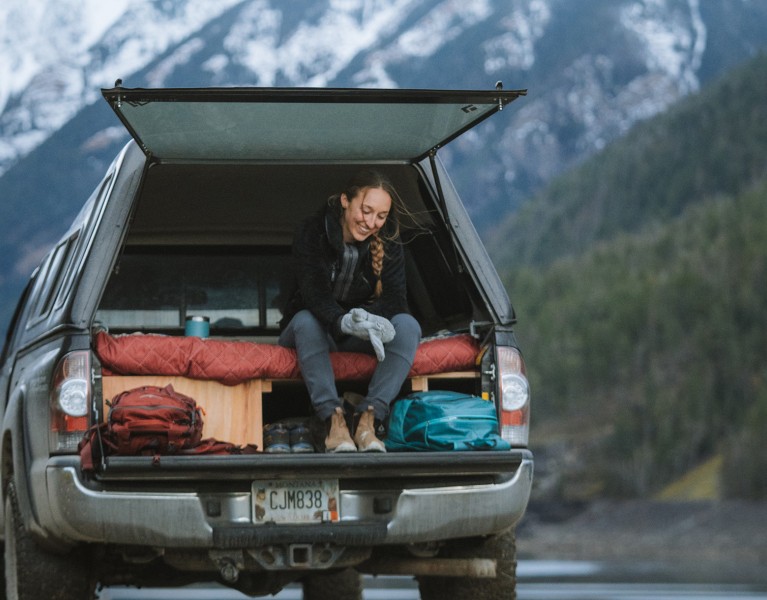
An Introduction to Car Camping: KÜHL’s Complete Guide
Table of Contents [Show]
So you’ve decided to go camping. But you don’t own an RV and you don’t live the #vanlife. And maybe you’re not interested in packing a limited amount of gear in a backpack and carrying the weight on your back as you hike to your location of choice. Why not try car camping?
Car camping offers the perfect blend of adventure and convenience, allowing you to explore the great outdoors without sacrificing comfort. Whether you're a seasoned camper or a newbie, car camping provides an accessible way to immerse yourself in nature. From sleeping in your vehicle to setting up a lavish campsite beside it, the options are as limitless as the open road.
Key Takeaways
- Ease of Access: Car camping is perfect for those who want to experience camping without the hassle of hiking miles to a campsite.
- Comfort is King: Unlike traditional tent camping, car camping allows you to bring along amenities like air mattresses and coolers for a more comfortable experience.
- Safety Measures: While generally safe, it's crucial to follow certain guidelines to ensure your car camping trip goes off without a hitch.
- Versatility: From national parks to public lands, there are numerous places where you can car camp, offering a versatile range of experiences.
- Gear Essentials: Knowing what to pack is key to a successful car camping trip.
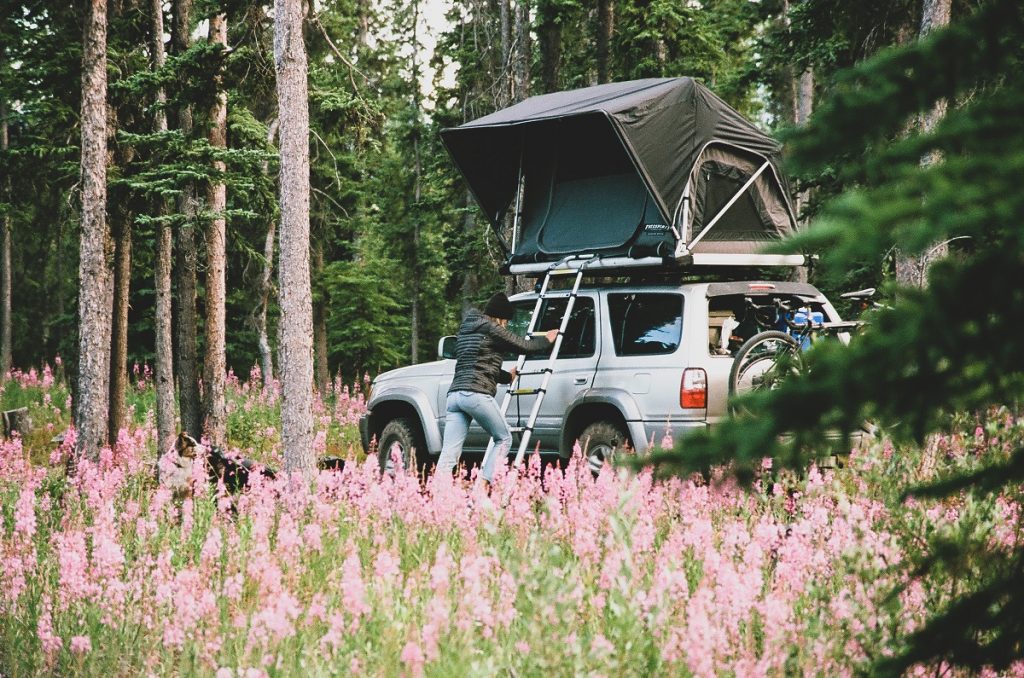
What Is Car Camping?
Car camping combines the thrill of camping with the convenience of a vehicle. Unlike traditional tent camping or backpacking, where you might hike miles to reach a remote campsite, car camping allows you to drive directly to your camping spot. This approach offers a more accessible and comfortable way to enjoy the great outdoors, making it ideal for families, beginners, or anyone looking for a less strenuous camping experience. With your camping car serving as a mobile basecamp, you can bring along a variety of amenities, from air mattresses and coolers to more elaborate camp stoves, enhancing your overall camping experience.
The beauty of car camping lies in its versatility. You can opt for established campgrounds with amenities like restrooms and water supply, venture into more remote areas on public lands for a more rugged experience, or post up in a Walmart parking lot for the night! Whether you're small car camping or SUV camping, your vehicle offers a secure and convenient space for all your essential camping gear, food, and other necessities, allowing you to explore nature without sacrificing comfort.
Is It Safe?
Generally speaking, car camping is safe, especially when compared to more adventurous forms of outdoor recreation like backcountry hiking or rock climbing. However, like any outdoor activity, it comes with its own set of risks and challenges. These can range from weather conditions and wildlife encounters to vehicle-related issues like a flat tire or dead battery. It's essential to be prepared and take necessary precautions to ensure a safe and enjoyable trip.
Tips on Staying Safe
- Choose a Safe Location: Always research your camping destination beforehand. Look for well-maintained sites, and stay away from any place that has signs forbidding overnight parking. If parking near businesses or neighborhoods, park near overhead lighting.
- Do a Vehicle Check: Before heading out, make sure your vehicle is in good condition. Check the tire pressure, oil levels, and ensure you have a full tank of gas.
- Take an Emergency Kit: Always carry an emergency kit that includes first aid supplies. You may also want to carry an item such as pepper spray for self-defense. If you're planning to camp in colder climates, you may also want to check out how to put together a winter car kit for additional items to include.
- Communicate: Always let someone know where you're going and when you expect to return. Carry a fully charged phone and consider bringing a backup power source.
- Stay Weather Aware: Keep an eye on the weather forecast and be prepared for sudden changes. Bring appropriate clothing and gear for the conditions you might encounter.
- Sleep Safely: Lock your doors and keep your key next to you while you sleep. Sound the alarm to your car if you hear anybody trying to open your doors at night, and cover your windows before you go to sleep for privacy.
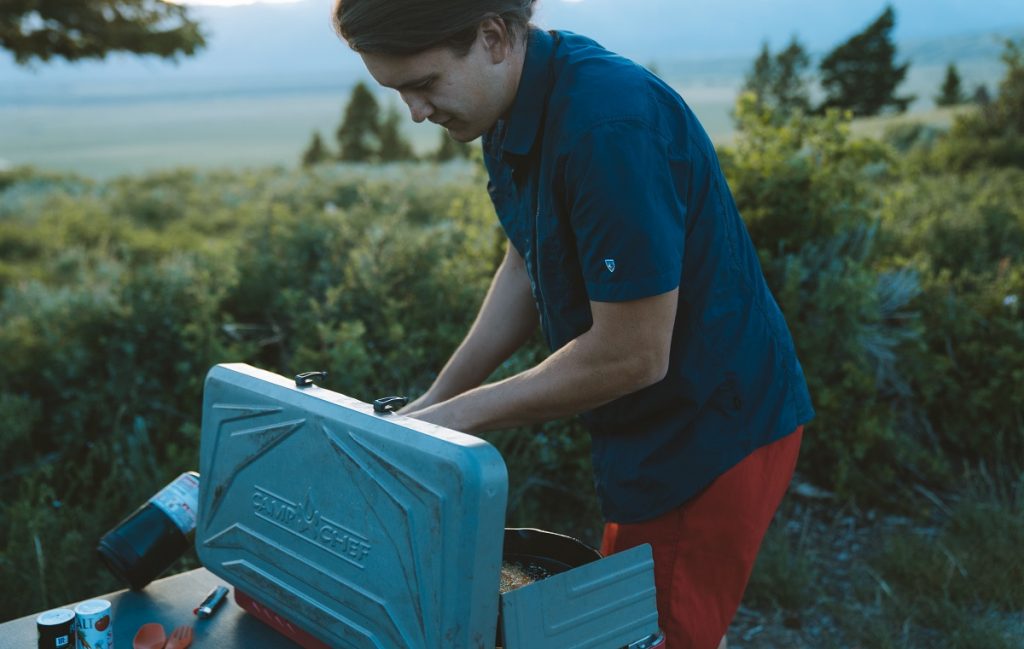
Where to Car Camp
When it comes to car camping, the options are as diverse as the landscapes you can explore. Whether you're looking for a serene lakeside retreat or a mountainous adventure, there are plenty of spots to choose from.
National Parks
National parks offer some of the most scenic and well-maintained car camping spots. These parks often provide amenities like restrooms, water supply, and even camping gear rentals. However, they can get crowded during peak seasons, so it's advisable to book your campsite in advance.
BLM Land
Bureau of Land Management (BLM) areas are free lands to camp on. These can be found through different apps like FreeRoam or Public Lands app. Of course, you can always ask at a local ranger station to get advice about the best places to camp. Most of these lands don't have facilities that standard campsites provide, so it’s a good idea to be prepared when camping on BLM land or in national parks. If you’re interested in dispersed camping on public lands, check out this guide to dispersed camping.
Truck Stops
Truck stops are definitely not a glamorous option for camping, but you can find WiFi and a shower. This is a great place to stop and take a rest if you are driving long distances and wish to stay near the highway. But just like the rest stops, it will most likely be a noisy area to sleep in.
Walmart Parking Lots
Walmart parking lots are another safe option as some of them are open 24/7 and provide plenty of lighting. Walmarts can be found in almost every city in the US, so it shouldn’t be hard to find one. If there are no signs that discourage overnight parking, and you see others who are staying overnight, then it is most likely okay to car camp for the night. If you are unsure, your best bet is to talk to the manager about whether you can park for the night.
Hospital Parking Lots
If you are traveling through a big city and want to stay an extra day, or just lose track of time and don’t want to drive in the dark; a hospital parking lot could be a viable option for stealth camping in your car.
Beachsides and Lakes
If you're a water enthusiast, car camping beside a lake or beach can be incredibly rewarding. The sound of the waves or the stillness of a lake can add an extra layer of relaxation to your trip. Just make sure to check local regulations about camping and fires near water bodies.
Private Campgrounds
Campgrounds are the most desirable option for anybody who would like to go on an adventure with their car. These campgrounds offer a mix of nature and amenities, often featuring facilities like showers, electricity, and even Wi-Fi. These can be a good option for families or those new to car camping. There are also some great apps that can help you find the perfect place to camp. AllStays, Hipcamp and TheDyrt offer legal locations to car camp, with sites ranging from free to glamping in style.
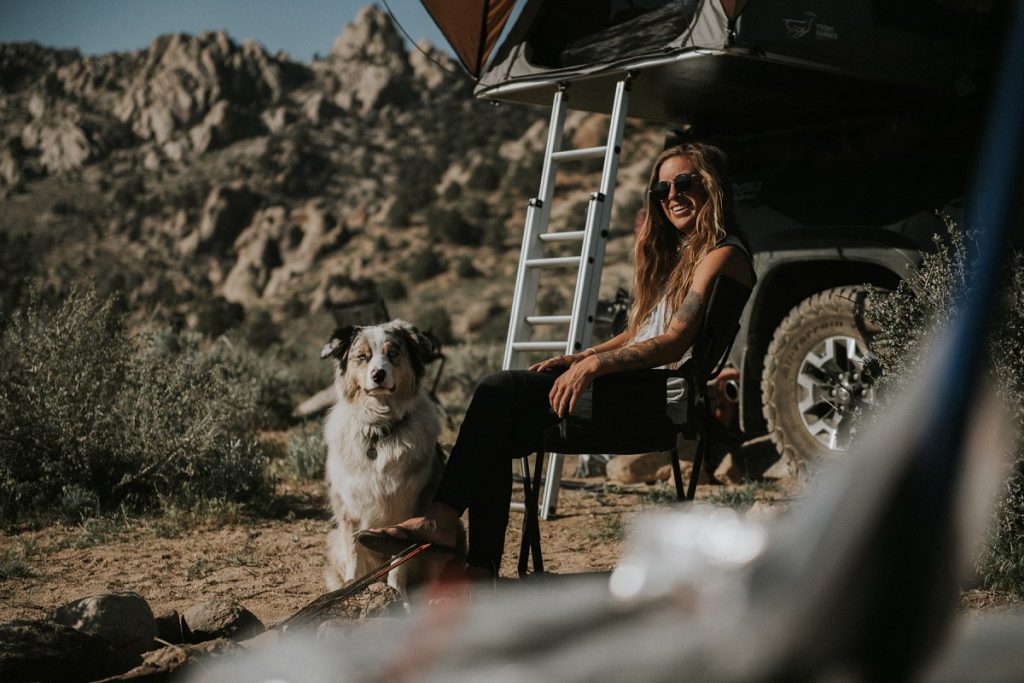
How To Start Car Camping
If you’re wondering how to car camp; it’s easier than you might think. The first step is choosing your destination based on your interests—whether it's a national park, a secluded beach, or a forested area. Once you've picked a location, the next step is to prepare your vehicle and gather all the necessary camping gear.
Preparing Your Vehicle and Gear
If you plan to sleep in your car, ensure there's adequate space alongside the gear you intend to bring; overpacking can make your experience uncomfortable. Before hitting the road, it's crucial to confirm that your vehicle is in optimal condition. Take it for a test drive, especially if you haven't driven it over long distances before. If you're not mechanically inclined, consider taking your car to a trusted local mechanic for a thorough check-up. This may include an oil change, tire rotation, and ensuring all lights are functional, among other things.
It's beneficial to acquire some basic mechanical skills, the most crucial being how to change a tire. These skills can prove invaluable, particularly if you're planning an extended journey.
Mapping Your Journey
Once your gear and vehicle are ready, the final step is to plan your route. While GPS devices are convenient for navigation, they may not be reliable if you're venturing deep into the woods where service is spotty. In such cases, let someone know about your exact destination and carry a physical map as a backup.
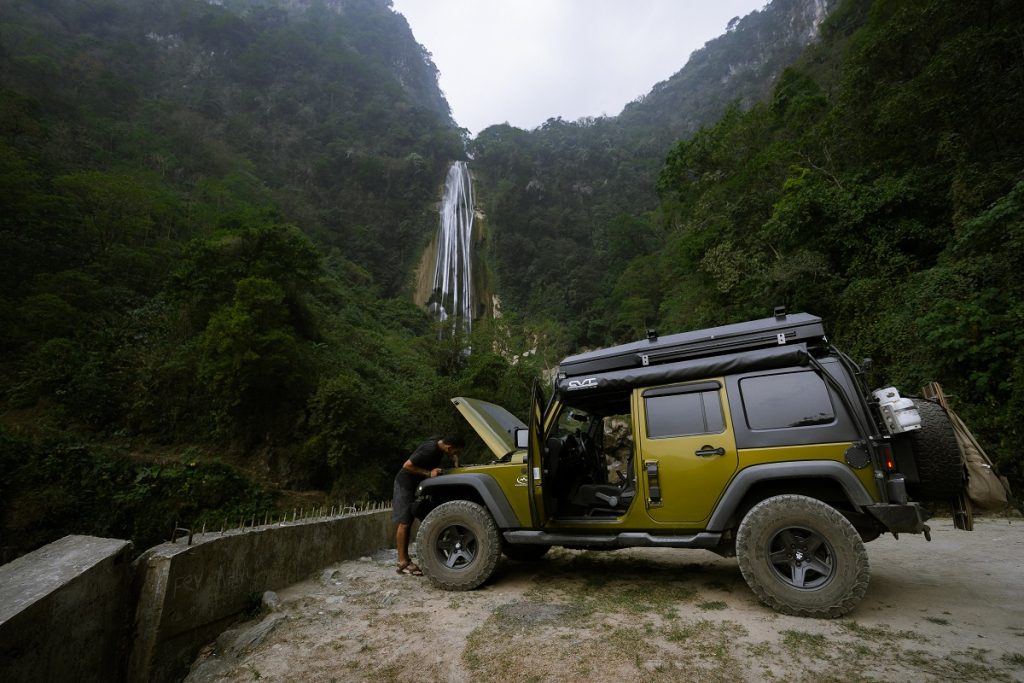
What Do I Need To Bring When Car Camping?
When it comes to car camping, being well-prepared can make or break your experience. Unlike traditional tent camping, you have the luxury of space to bring along more camping gear and amenities. Here’s a few items that are needed for a comfortable trip, but for a complete checklist of what to bring on your camping trip, check out this camping checklist.
Sleeping Arrangements
A comfortable sleeping bag is a must, but you can also consider an air mattress for added comfort. If you're sleeping in your car, make sure to bring along pillows and blankets to make the space more comfortable.
Cooking Essentials
A camp stove is indispensable for cooking meals. Don't forget utensils, pots, and a cooler to store your food. It's also a good idea to bring along some camping food storage solutions to keep everything fresh.
Clothing
Depending on the weather, pack appropriate clothing. This could range from hiking outfits for summer to rain gear for unpredictable weather. To be fully prepared with your attire for your camping trip make sure to check out the versatile outdoor clothing at KÜHL, including men’s outdoor wear and women's hiking clothing.
Safety and Navigation
A first aid checklist is crucial for any camping trip. Also, bring a map and compass, even if you plan to use GPS. It's always better to have a backup.
Hygiene Essentials
You’ll want to bring all the hygiene essentials like toothbrush, toothpaste, biodegradable soap, toilet paper, wet wipes, microfiber towel, and any extras that would suit your needs. For example, you may want to bring along a portable shower if you plan on spending multiple days in the woods.
Camping Essentials
If you are camping in any forested area you will want to bring a few essentials with you that you may not have thought about. A small hatchet and an easy to use hand saw will be your best friends when collecting wood for a fire. You’ll also want to bring a headlamp with extra batteries, a battery powered lantern, a knife, some rope, a tarp, and matches or a lighter. These items will almost always come in handy when camping.
Extras
The extras are things you don’t necessarily need, but would be nice to have. This will be different for each person and their hobbies. You might want to bring musical instruments, books, art supplies, a folding chair, hammocks, or anything else that may make your adventure just that much better without compromising too much space.
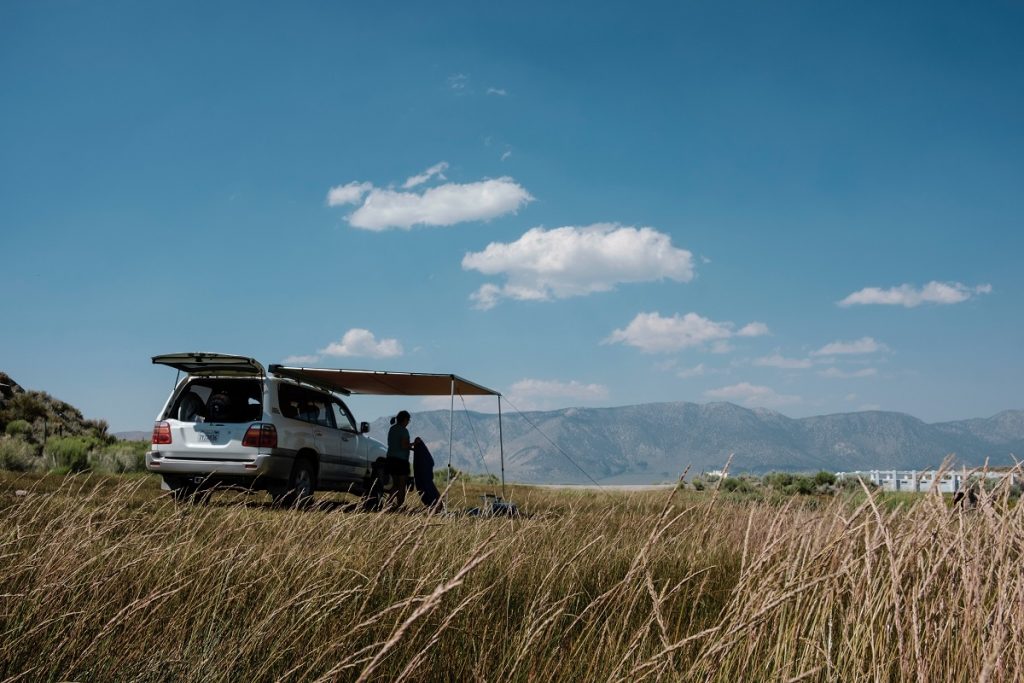
How Do I Plan A Camping Trip?
Planning is a stress-relieving way to get everything in order before you start camping in your car. Once you have all the items you think you’ll need for your trip, you can start researching places to stay.
Decide Where To Stay
If you know you’ll be driving long distances, say 10 hours, and you're driving by yourself, then you could cut the time in half and drive 5 hours one day and 5 hours the next day. In case you would rather get on the road early the next day, it’s wise to stay somewhere near the highway like a rest stop or a truck stop. If you know you’ll need supplies like water and food, then you could stay in town at a Walmart or 24/7 gyms.
Maybe your plan is to go straight to the forest for a real camping experience. Research the different campsites all around the US and find the perfect one for your desired location. When planning to camp in the forest it’s important to consider your needs. For example, do you need running water? An established restroom? Electricity? Picnic tables, a cooking stove for prepping meals? A nearby lake? You’ll be able to find everything you need online for the perfect campsite.
If you’re more low-maintenance and simply want to be anywhere out in nature, then there are plenty of amazing free campsites all around the country that will bring forth the opportunity for free car camping in seclusion and silence.
Plan For The Weather
The next factor to plan for is the weather. It’s not fun trying to fall asleep at night when you are too cold or too hot. So before you head out into the forest make sure to research the weather and elevation where you’ll be camping.
For cold weather, pack warm gear such as a beanie, insulated jacket, Merino wool socks, a blanket, and a sleeping bag. For warm weather, it’s ideal to park your car under some form of shade and, if you can, create some sort of mesh screening so you can leave your windows open without having the trouble of insects in your car. Bring comfortable summer clothing, such as lightweight pants and sun-protective shirts. It's always a good idea to bring a comfortable baselayer to sleep in, as it provides warmth and insulation during the temperature variations at night.
Also, if you know it’s going to rain, bring a rain jacket and a tarp that you could put over your car so you can leave the windows open without having a rude awakening of water in your bed. And be cautious of where you are parking on forest roads so you don’t get stuck in the mud when it rains.
Bring Supplies
Make sure to bring food and water. I know it sounds obvious, but you may be out in the forest for multiple days and not too close to town, so it’s a good idea to be stocked up on food and water before you begin your adventure into the woods.
It’s ideal to have at least two gallons of water per day. So if you know you’re staying somewhere for two days, bring up to four gallons of water with you for cooking, drinking, and cleaning.
In case you’re going to be cooking, it’s a good idea to bring a portable gas stove and canned items that don’t have to be refrigerated. If you want something simple so that you don’t have to cook, bring items for veggie wraps or food for sandwiches.
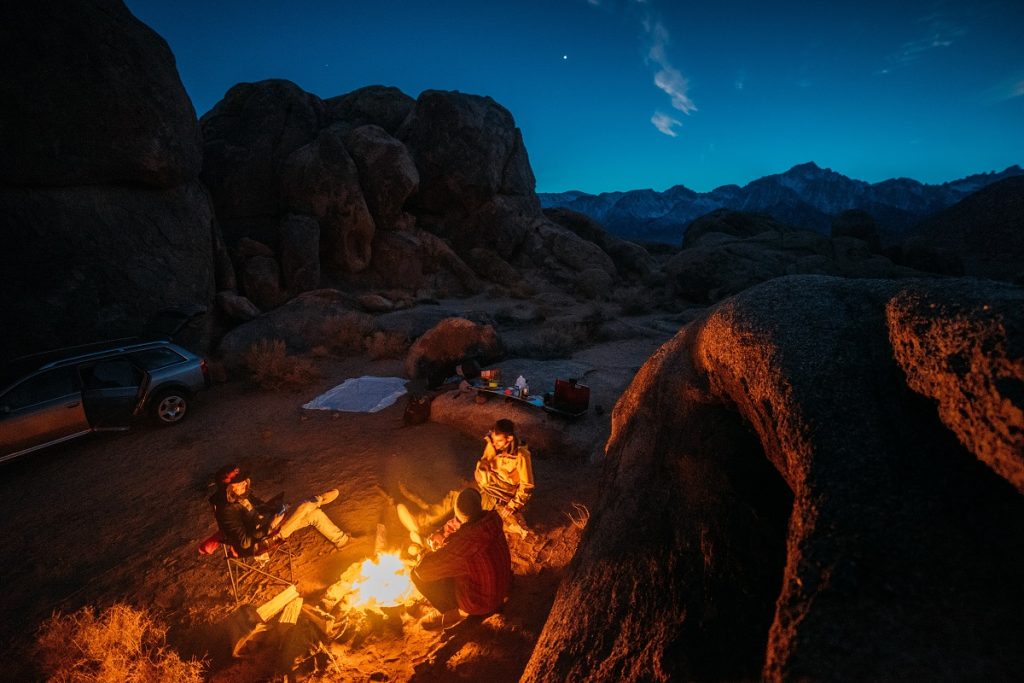
Can I Car Camp With My Dog?
Most pet owners love to bring their best friend along everywhere they go, including a car-camping road trip. For many dogs, riding in the car is exciting. But for others, it can be scary and cause a lot of anxiety.
If you have never taken your dog on a long car ride or brought them on a camping trip, you might want to consider going for small rides each day. This way, you'll help your dog feel comfortable and at ease inside the car. Before taking your road trip, make the back seat welcoming by laying out blankets, pillows, or their dog bed.
Another thing to keep in mind when traveling with your dog is that you need to make sure that the campgrounds you choose to stay at are pet-friendly. Pet-friendly campsites are great places to socialize your dog and meet new friends. However, remember that these sites will also have strict policies and rules. Leash requirements, barking ordinances, and aggressive behavior rules are some of the things you should ask about when making a reservation.
Here are some doggy essentials to bring on a car camping adventure with a dog:
For some tips on traveling with a dog, check out this post: How to Travel 18,000 Miles With Your Dog.
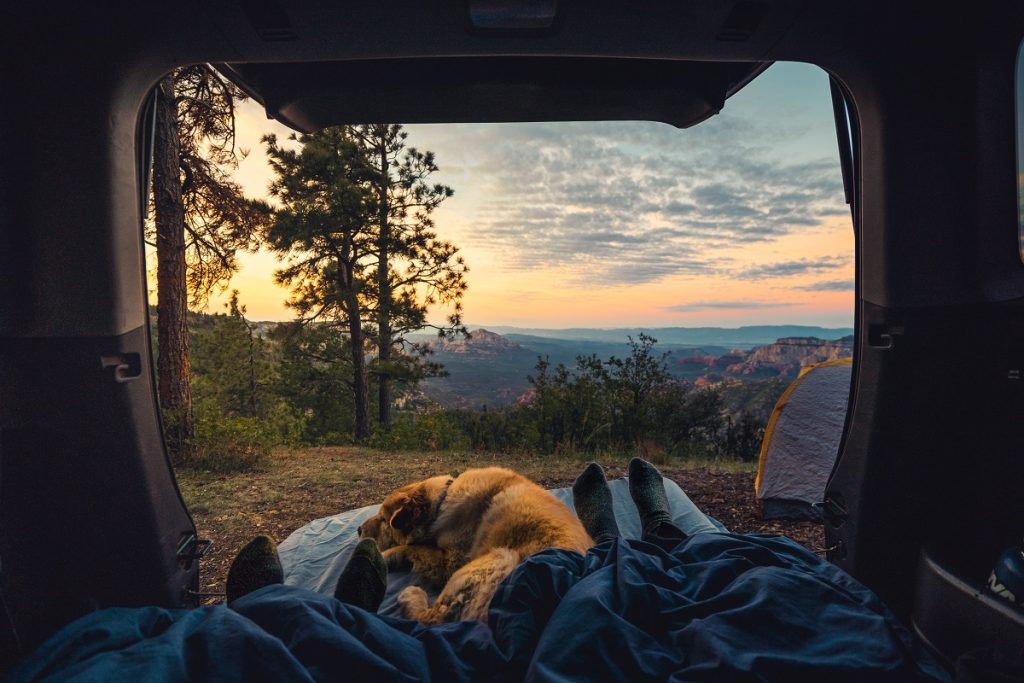
Car Camping Tips and Tricks
Car camping is a versatile and enjoyable way to experience the great outdoors, but learning how to camp in your car for the first time can be a bit tricky. Here’s a few tips that can make your adventure even better.
Maximize Space
Space is a premium when you're car camping. One of the best hacks for camping food storage is to utilize storage boxes or organizers. They also work great for gear and other essentials. This not only maximizes the available space but also makes it easier to locate items when you need them. Consider using vacuum-sealed bags for clothes and soft goods to save even more space.
Privacy
Privacy can be a concern, especially when camping in more populated areas or parking lots. Consider bringing along some curtains, window shades, or even a sun shield for your windshield. These can provide added privacy and also help to regulate the temperature inside the car.
Solar-Powered Amenities
Modern conveniences can make a significant difference in your car camping experience. Solar-powered fans can help circulate air, making sleeping more comfortable in warmer weather. Portable chargers can keep your devices powered, ensuring you have access to GPS, music, or emergency services. If you're a coffee aficionado, there are even ways to use the sun to make a cup of coffee.
Safety Measures
Always prioritize safety. Keep a first-aid kit readily accessible and familiarize yourself with basic first-aid procedures. If you're camping in a remote area, a satellite phone or emergency beacon can be a lifesaver. Also, always let someone know your itinerary and when you expect to return.
Final Thoughts
Camping in a car offers a unique blend of adventure and comfort, making it an ideal choice for both seasoned campers and beginners. With the right preparation and a sense of adventure, you can turn your vehicle into a home away from home as you explore the great outdoors.
FAQs
How can I sleep comfortably in my car?
To sleep comfortably in your car, invest in a quality air mattress or sleeping pad. Make sure to recline the seats for added comfort and use pillows and blankets to create a cozy sleeping environment.
What is the difference between car camping and backpacking?
Car camping allows you to bring more amenities and camp right next to your vehicle, offering a more comfortable experience. Backpacking involves hiking to remote locations with all your gear, making it a more strenuous but potentially more rewarding adventure. For more info on what to prepare for a backpacking trip, you can review our backpacking checklist.
Is it OK to sleep with your car on?
It's generally not advisable to sleep with your car on due to the risk of carbon monoxide poisoning. Always ensure proper ventilation if you need to run the car for heat or air conditioning.
Do you need a tent for car camping?
A tent is optional for car camping. You can either sleep in your vehicle or set up a tent next to it, depending on your preference and the weather conditions.
How long can you sleep in a car?
The duration you can sleep in a car varies by individual and situation. However, it's essential to take breaks, stretch, and adhere to any local laws or regulations regarding overnight parking.
What is the advantage of a tent on top of a car?
A rooftop tent provides elevated sleeping quarters, offering better views and added protection from ground-level hazards like flooding or critters. It also frees up space inside your vehicle for storage.
